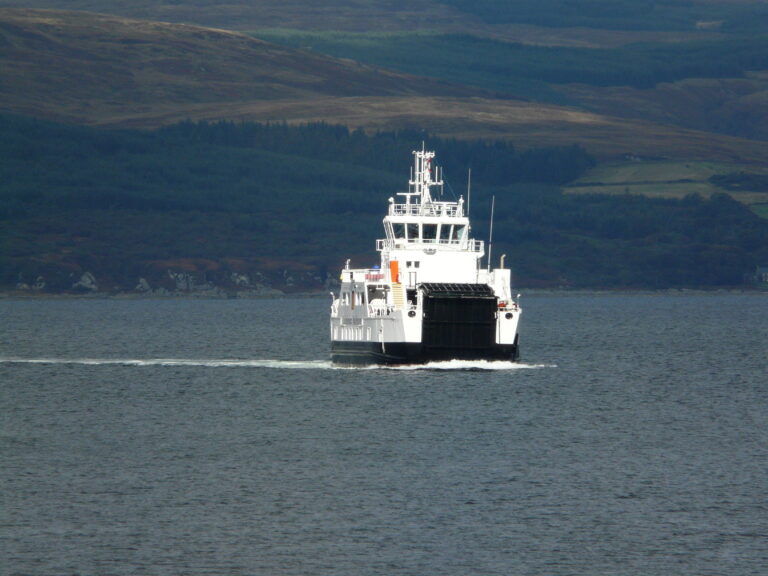AqualisBraemar LOC has been appointed by Caledonian Maritime Assets Ltd. (CMAL) to partner in designing an emission free hydrogen fuel cell sea-going passenger and car ferry – a first for Europe. This is part of HYSEAS III, a Horizon 2020 funded project.

“AqualisBraemar LOC understand the important role the maritime industry has to play in the global fight for climate change. Whilst tackling marine emissions is a global responsibility, we are also proud to be supporting CMAL, in its role as part of a Scottish-led consortia, in building up world-leading competence in alternative clean fuel systems, which harnesses local marine renewable sources.” - Graham Dallas, Business Development Manager for AqualisBraemar LOC in Europe
HYSEAS III follows HYSEAS I and HYSEAS II, and aims to build on the previous projects’ findings, by demonstrating that fuel cells may be successfully integrated with a proven marine hybrid electric drive system (electric propulsion, control gear, batteries etc.), along with associated hydrogen storage and bunkering arrangements.
The HYSEAS III project will develop, construct, test and validate data in a full-sized drive train on land.
AqualisBraemar LOC’s scope of work is to design a double-ended sea going passenger and car ferry capable of utilizing the hydrogen powered drive train and thereby running completely emission-free. In recent years, AqualisBraemar LOC has developed a range of marine and engineering consulting services to support carbon-reduction initiatives in the maritime sector, including expertise in electrical engineering and alternative fuel integration for vessels.
The ferry will be designed around the requirements of Shapinsay in Orkney where hydrogen fuel is generated through wind power. The ferry which will carry 16 cars or two trucks, and 120 passengers will be capable of sailing to and from any concrete 1:8 slipway where hydrogen is available locally to power the vessel.
AqualisBraemar LOC operations in Aberdeen will work with CMAL, to ensure optimum sustainability in the overall vessel design, whilst delivering a design, which meets the highest level of safety and reliability for a lifeline ferry service.
The group will also draw upon its sister company, Longitude Engineering’s long track-record and reputation in vessel design, upgrade and conversions, to support the HYSEAS III project.
“AqualisBraemar LOC and Longitude’s involvement in this project reflect our group’s commitment to being a driver – and not just a passenger – of the global energy transition. We are really excited to be working with CMAL on this ground-breaking project, which will blaze a trail for more sustainable fuel systems in global maritime and shipbuilding.” - Dean Goves, Small Craft and Vessel Design Director, Longitude, which provides independent engineering and design consulting to the shipping, oil and gas and renewables sectors.
“The contract award represents a significant step forward in establishing a new, innovative vessel concept, and marks an important shift towards entirely emissions-free marine transport. Hydrogen ferries exist, but this concept is built around using hydrogen fuel cells to power a seagoing ship, the first in the UK and Europe. If successful, the next step will be to take the knowledge and know-how into building a ferry.”- John Salton, Fleet Manager and Projects Director at CMAL
The HYSEAS III consortium is comprised of CMAL (Scotland), Kongsberg Gruppen (Norway), Ballard (Denmark), Orkney Isles Council (Scotland), St Andrew University (Scotland), McPhy (France), Arcsilea (England) and Interferry (Sweden).
Source: AqualisBraemar